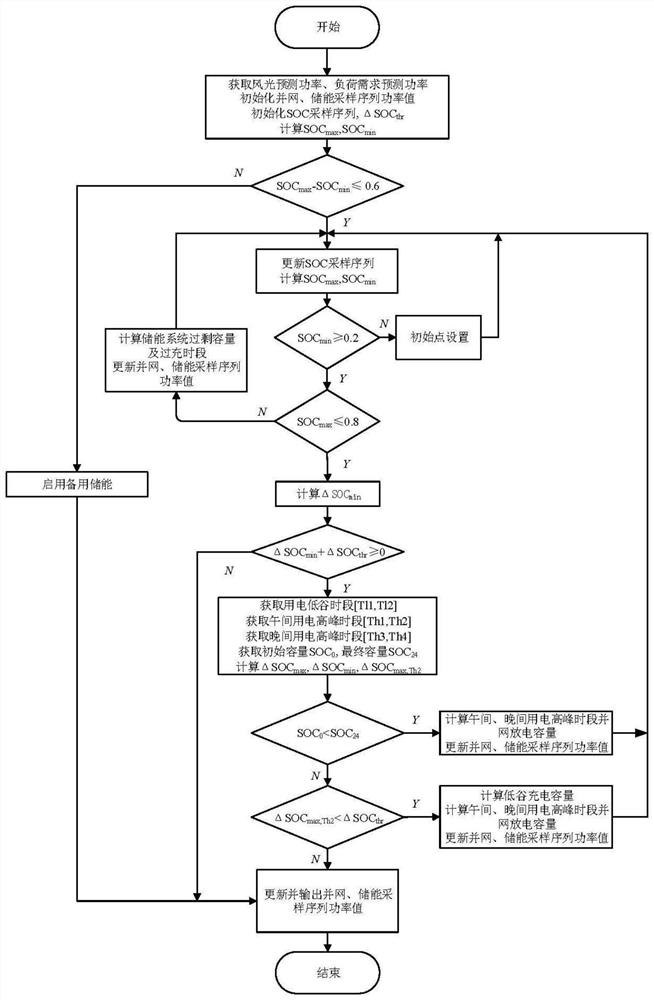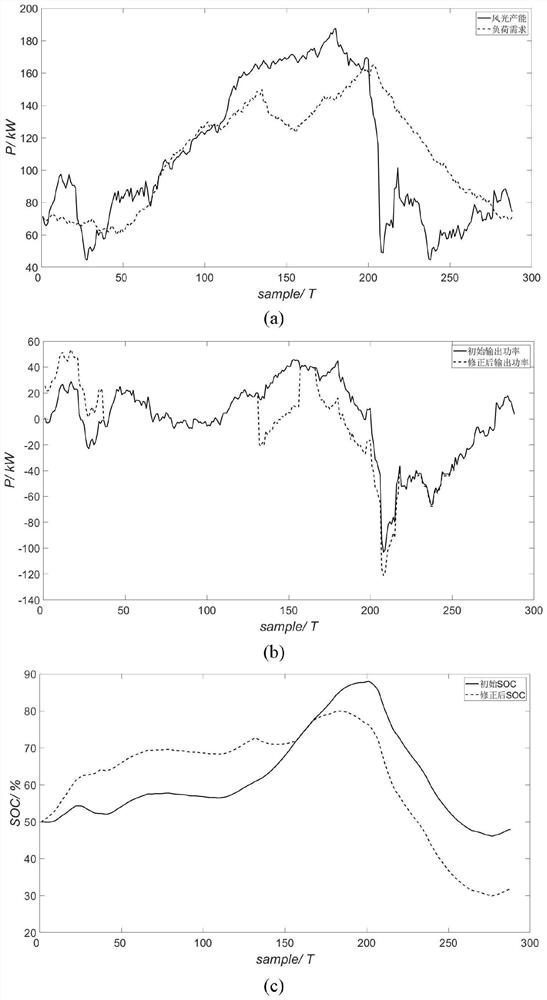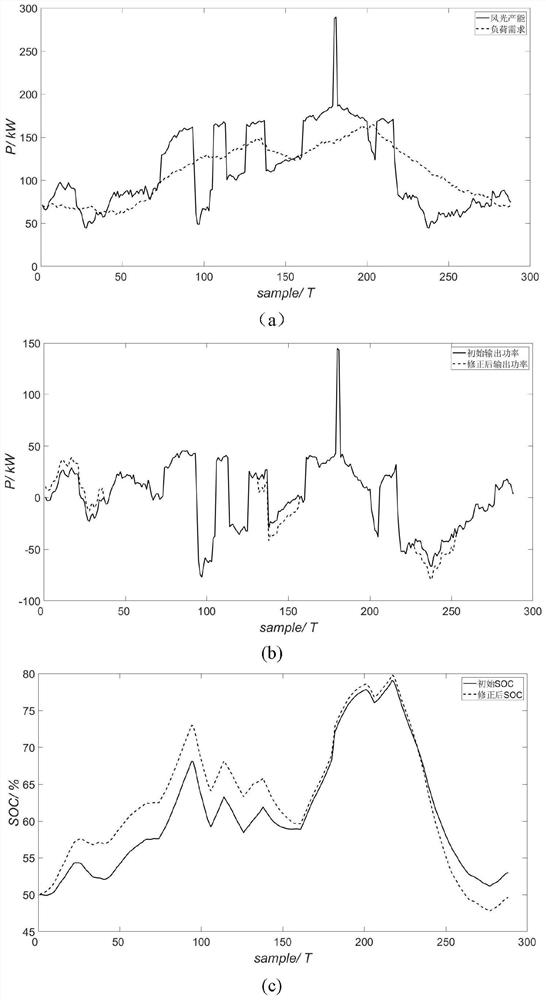A day-ahead energy scheduling algorithm for wind-solar-storage microgrid
An energy scheduling and microgrid technology, applied in photovoltaic power generation, power generation forecasting and calculation in AC networks, etc., can solve problems such as increasing system operating costs and reducing microgrid system benefits, reducing operating costs and improving stability. , the effect of improving economic efficiency
- Summary
- Abstract
- Description
- Claims
- Application Information
AI Technical Summary
Problems solved by technology
Method used
Image
Examples
specific example 1
[0056] Step 3-1. Calculate the initial energy storage state of charge change plan curve according to formula (3) and the energy storage initial power exchange plan sequence. The initial energy storage state of charge change curve is as follows: figure 2 As shown in (c), if the difference between the maximum value and the minimum value of the state of charge in the initial state of charge change curve is less than 60%, enter step 3-2;
[0057] Step 3-2. Scan the entire initial state of charge sequence of the energy storage, and find that the maximum value of the state of charge is 88%. Therefore, it is necessary to correct the peak value of the energy storage, and calculate the corrected charge by formula (2) and formula (3). State of charge plan curve and energy storage power exchange plan sequence, repeat step 3-2 until the maximum state of charge does not exceed 80%;
[0058] Step 3-3. Re-scan the SOC planning curve corrected in step 3-2. At the same time, obtain the sampli...
specific example 2
[0068] Step 3-1, calculate the initial energy storage state of charge change curve according to formula (3) and the energy storage initial power exchange plan sequence, the initial energy storage state of charge change curve is as follows image 3 As shown in (c), if the difference between the maximum value and the minimum value of the state of charge in the initial state of charge change curve is less than 60%, go to step 3-2.
[0069] Step 3-2, scan the entire energy storage initial state of charge sequence, and go to step 3-3 if there is no state of charge exceeding the limit point.
[0070] In step 3-3, re-scan the SOC curve corrected in step 3-2, and at the same time, obtain the time period of the sampling point where the low electricity consumption and the peak electricity consumption are located in the next scheduling cycle. from image 3 It can be seen from (a) that the low power consumption period is between 0:00 and 5:00, and the peak power consumption period is betwe...
specific example 3
[0073] Step 3-1, calculate the initial energy storage state of charge change curve according to formula (3) and the energy storage initial planned power sequence, the initial energy storage state of charge change curve is as follows Figure 4 As shown in (c), if the difference between the maximum value and the minimum value of the state of charge in the initial state of charge change curve is less than 60%, go to step 3-2.
[0074] Step 3-2: Scan the entire initial state of charge sequence of the energy storage, and find that the maximum value of the state of charge is 85.6%. Therefore, the peak value of the energy storage needs to be corrected, and the corrected charge can be calculated by formula (2) and formula (3). Electricity state curve and energy storage power exchange plan sequence. Repeat step 3-2 until the maximum state of charge does not exceed 80%.
[0075] Step 3-3: re-scan the SOC curve corrected in step 3-2, and at the same time, obtain the time period of the s...
PUM
 Login to View More
Login to View More Abstract
Description
Claims
Application Information
 Login to View More
Login to View More - R&D
- Intellectual Property
- Life Sciences
- Materials
- Tech Scout
- Unparalleled Data Quality
- Higher Quality Content
- 60% Fewer Hallucinations
Browse by: Latest US Patents, China's latest patents, Technical Efficacy Thesaurus, Application Domain, Technology Topic, Popular Technical Reports.
© 2025 PatSnap. All rights reserved.Legal|Privacy policy|Modern Slavery Act Transparency Statement|Sitemap|About US| Contact US: help@patsnap.com



